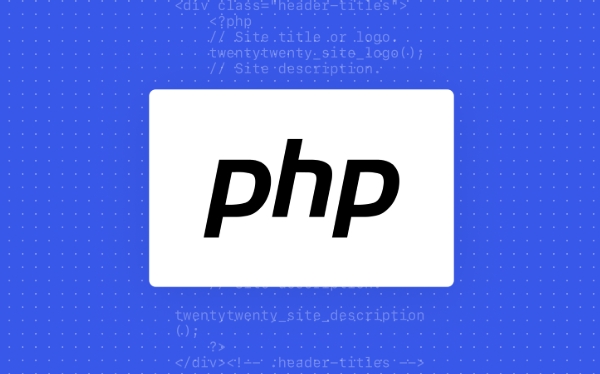How to find the Nth occurrence of a substring in PHP
Jul 09, 2025 am 03:00 AMFinding the Nth occurrence of the substring in PHP can be achieved by combining built-in functions. 1. Use strpos to loop search: initialize the offset variable, call strpos and update the offset until the Nth occurrence position is found or false is returned; 2. Use the regular expression preg_match_all: Get all matching positions at once, and then take the Nth index value. The two methods have their own advantages and disadvantages. Strapos is lighter and flexible, suitable for simple searches; preg_match_all is more suitable for complex matching or multi-keyword operations. When applying it in practice, you need to pay attention to boundary conditions, such as the match cannot be found or the input is empty.

In PHP, the standard function does not directly support this function in finding the Nth occurrence position of a substring in PHP, but it can be achieved by combining some built-in string processing functions. The key is to understand the way string traversal and control the starting position of each search.

Use strpos loop to find
The most common and flexible method is to use strpos function to search it step by step. The core idea of ??this method is: after each match is found, continue to search from the position until the Nth time is found.
The implementation steps are as follows:

- Initialize a variable to record the current position (usually 0)
- Cycle N times:
- Each call to
strpos($haystack, $needle, $offset)lookup - If it cannot be found, return false or end early
- After finding, update offset to the next bit of the current matching position
- Each call to
function findNthOccurrence($haystack, $needle, $n) {
$offset = 0;
$count = 0;
while ($count < $n) {
$pos = strpos($haystack, $needle, $offset);
if ($pos === false) return false; // The nth time $offset cannot be found = $pos strlen($needle); // Update the offset $count;
}
return $offset - strlen($needle); // Return to the nth occurrence position} For example, if you look for the position of the second "ab" in "abcabxabc" , you should return 3.
Using regular expressions
If you are more familiar with regular expressions, you can also use preg_match_all to find all matching positions at once and then take the Nth one.

This method is more suitable for scenarios that require multiple operations or complex matching.
function findNthOccurrenceRegex($haystack, $needle, $n) {
preg_match_all('/' . preg_quote($needle, '/') . '/', $haystack, $matches, PREG_OFFSET_CAPTURE);
if (isset($matches[0][$n - 1])) {
return $matches[0][$n - 1][1];
}
return false;
}Here are a few details to note:
- Use
preg_quoteto avoid special characters affecting regular syntax -
$matches[0]is a complete matching result array -
$n - 1is because the array index starts at 0
Comparison of performance and applicable scenarios
The two methods have their advantages and disadvantages:
-
Loop search (
strpos):- Lighter, suitable for simple search
- All matches will not be loaded at once, memory-friendly
- The control process is more flexible and you can exit halfway
-
Regular way (
preg_match_all):- More suitable for scenarios where all location information is needed
- It may be a little slow for large text because you want to scan the entire string
If you only look up once or twice, the first method is recommended first; if you want to frequently find the location of multiple keywords that appear different times, the second method will be easier to expand.
Basically that's it. Both methods are not complicated, but when using them, you should pay attention to boundary conditions, such as not finding enough matches, empty string input, etc.
The above is the detailed content of How to find the Nth occurrence of a substring in PHP. For more information, please follow other related articles on the PHP Chinese website!

Hot AI Tools

Undress AI Tool
Undress images for free

Undresser.AI Undress
AI-powered app for creating realistic nude photos

AI Clothes Remover
Online AI tool for removing clothes from photos.

Clothoff.io
AI clothes remover

Video Face Swap
Swap faces in any video effortlessly with our completely free AI face swap tool!

Hot Article

Hot Tools

Notepad++7.3.1
Easy-to-use and free code editor

SublimeText3 Chinese version
Chinese version, very easy to use

Zend Studio 13.0.1
Powerful PHP integrated development environment

Dreamweaver CS6
Visual web development tools

SublimeText3 Mac version
God-level code editing software (SublimeText3)
 PHP Variable Scope Explained
Jul 17, 2025 am 04:16 AM
PHP Variable Scope Explained
Jul 17, 2025 am 04:16 AM
Common problems and solutions for PHP variable scope include: 1. The global variable cannot be accessed within the function, and it needs to be passed in using the global keyword or parameter; 2. The static variable is declared with static, and it is only initialized once and the value is maintained between multiple calls; 3. Hyperglobal variables such as $_GET and $_POST can be used directly in any scope, but you need to pay attention to safe filtering; 4. Anonymous functions need to introduce parent scope variables through the use keyword, and when modifying external variables, you need to pass a reference. Mastering these rules can help avoid errors and improve code stability.
 How to handle File Uploads securely in PHP?
Jul 08, 2025 am 02:37 AM
How to handle File Uploads securely in PHP?
Jul 08, 2025 am 02:37 AM
To safely handle PHP file uploads, you need to verify the source and type, control the file name and path, set server restrictions, and process media files twice. 1. Verify the upload source to prevent CSRF through token and detect the real MIME type through finfo_file using whitelist control; 2. Rename the file to a random string and determine the extension to store it in a non-Web directory according to the detection type; 3. PHP configuration limits the upload size and temporary directory Nginx/Apache prohibits access to the upload directory; 4. The GD library resaves the pictures to clear potential malicious data.
 Commenting Out Code in PHP
Jul 18, 2025 am 04:57 AM
Commenting Out Code in PHP
Jul 18, 2025 am 04:57 AM
There are three common methods for PHP comment code: 1. Use // or # to block one line of code, and it is recommended to use //; 2. Use /.../ to wrap code blocks with multiple lines, which cannot be nested but can be crossed; 3. Combination skills comments such as using /if(){}/ to control logic blocks, or to improve efficiency with editor shortcut keys, you should pay attention to closing symbols and avoid nesting when using them.
 How Do Generators Work in PHP?
Jul 11, 2025 am 03:12 AM
How Do Generators Work in PHP?
Jul 11, 2025 am 03:12 AM
AgeneratorinPHPisamemory-efficientwaytoiterateoverlargedatasetsbyyieldingvaluesoneatatimeinsteadofreturningthemallatonce.1.Generatorsusetheyieldkeywordtoproducevaluesondemand,reducingmemoryusage.2.Theyareusefulforhandlingbigloops,readinglargefiles,or
 Tips for Writing PHP Comments
Jul 18, 2025 am 04:51 AM
Tips for Writing PHP Comments
Jul 18, 2025 am 04:51 AM
The key to writing PHP comments is to clarify the purpose and specifications. Comments should explain "why" rather than "what was done", avoiding redundancy or too simplicity. 1. Use a unified format, such as docblock (/*/) for class and method descriptions to improve readability and tool compatibility; 2. Emphasize the reasons behind the logic, such as why JS jumps need to be output manually; 3. Add an overview description before complex code, describe the process in steps, and help understand the overall idea; 4. Use TODO and FIXME rationally to mark to-do items and problems to facilitate subsequent tracking and collaboration. Good annotations can reduce communication costs and improve code maintenance efficiency.
 Quick PHP Installation Tutorial
Jul 18, 2025 am 04:52 AM
Quick PHP Installation Tutorial
Jul 18, 2025 am 04:52 AM
ToinstallPHPquickly,useXAMPPonWindowsorHomebrewonmacOS.1.OnWindows,downloadandinstallXAMPP,selectcomponents,startApache,andplacefilesinhtdocs.2.Alternatively,manuallyinstallPHPfromphp.netandsetupaserverlikeApache.3.OnmacOS,installHomebrew,thenrun'bre
 How to access a character in a string by index in PHP
Jul 12, 2025 am 03:15 AM
How to access a character in a string by index in PHP
Jul 12, 2025 am 03:15 AM
In PHP, you can use square brackets or curly braces to obtain string specific index characters, but square brackets are recommended; the index starts from 0, and the access outside the range returns a null value and cannot be assigned a value; mb_substr is required to handle multi-byte characters. For example: $str="hello";echo$str[0]; output h; and Chinese characters such as mb_substr($str,1,1) need to obtain the correct result; in actual applications, the length of the string should be checked before looping, dynamic strings need to be verified for validity, and multilingual projects recommend using multi-byte security functions uniformly.
 Learning PHP: A Beginner's Guide
Jul 18, 2025 am 04:54 AM
Learning PHP: A Beginner's Guide
Jul 18, 2025 am 04:54 AM
TolearnPHPeffectively,startbysettingupalocalserverenvironmentusingtoolslikeXAMPPandacodeeditorlikeVSCode.1)InstallXAMPPforApache,MySQL,andPHP.2)Useacodeeditorforsyntaxsupport.3)TestyoursetupwithasimplePHPfile.Next,learnPHPbasicsincludingvariables,ech






